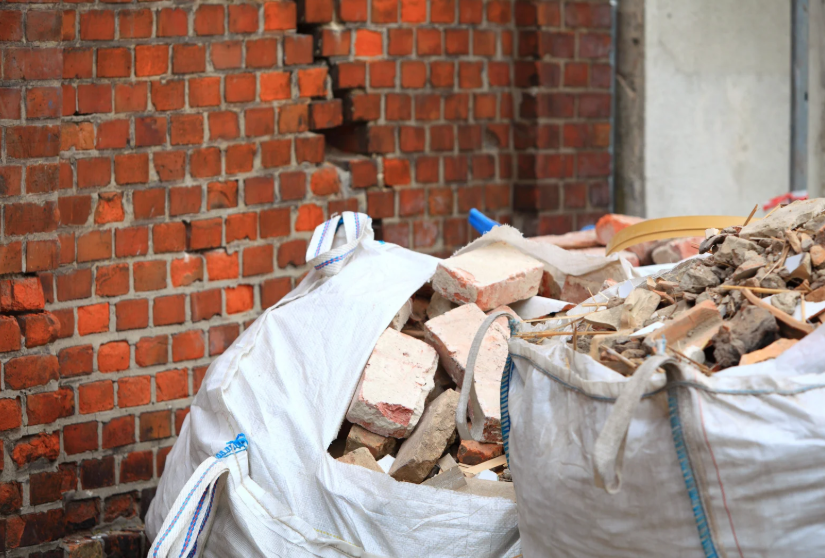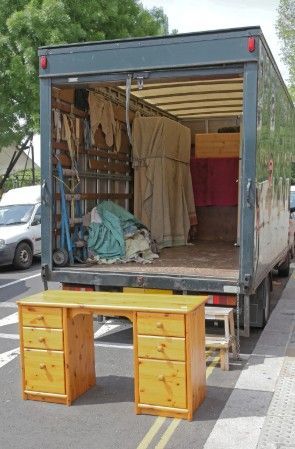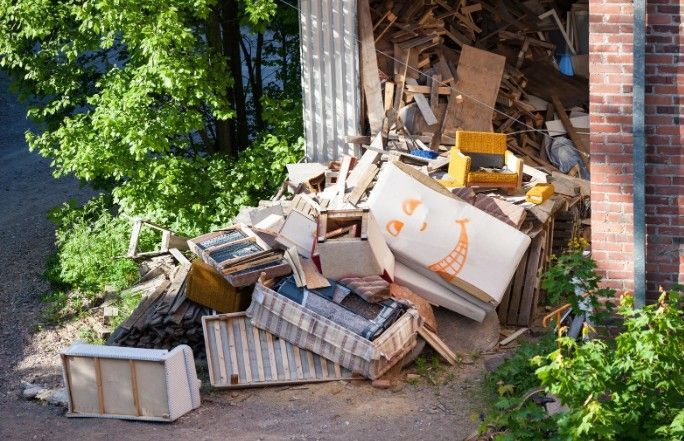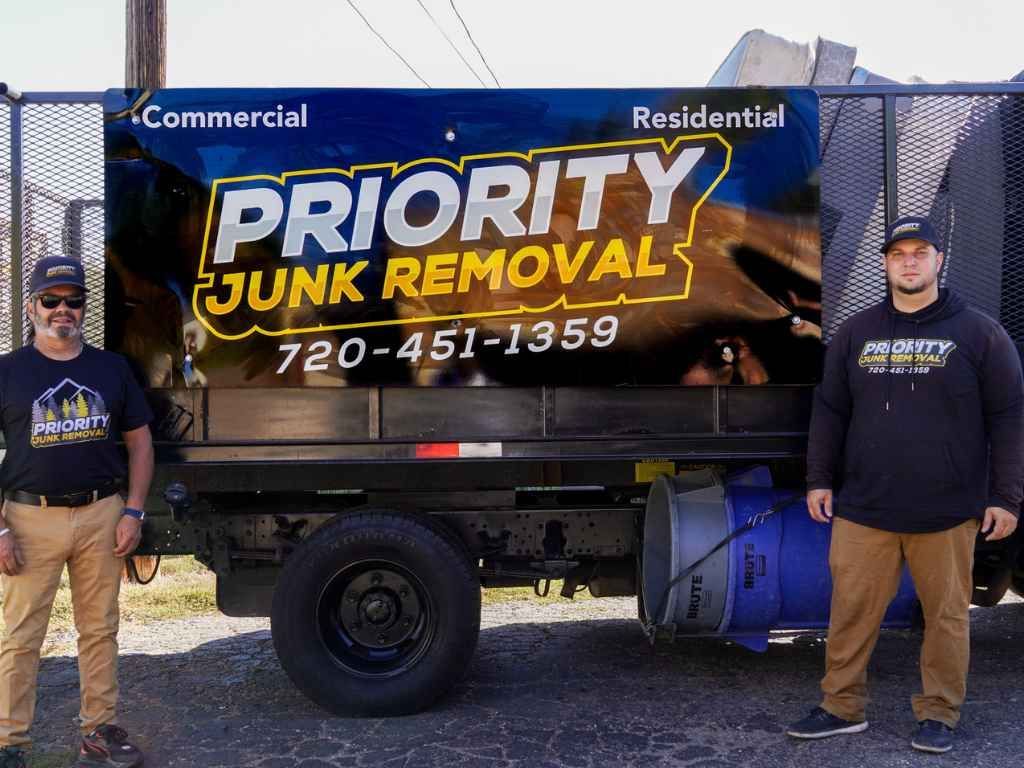How to Safely Dispose of Commercial Construction Debris
Construction projects, whether small or large, are often accompanied by substantial waste. From discarded wood and concrete to broken tiles and metal scraps, construction debris can quickly accumulate. Not only is this waste unsightly, but improper disposal can also have serious environmental and legal consequences. For businesses involved in commercial construction, understanding the best practices for debris disposal is not just a matter of cleanliness—it's a matter of compliance and sustainability.
The Importance of Proper Disposal
Proper disposal of commercial construction debris isn’t just about keeping the job site clean—it’s about protecting the environment, avoiding legal trouble, and managing costs effectively. Construction waste is one of the largest contributors to landfills, with materials like treated wood, plastics, and metals posing long-term environmental hazards if not handled correctly. When these materials break down, they can release harmful toxins into the soil and water, damaging local ecosystems and threatening wildlife.
Beyond environmental concerns, improper disposal can lead to hefty fines and legal action if businesses fail to follow local waste management regulations. Sorting waste properly, recycling where possible, and disposing of hazardous materials through approved channels are key steps toward compliance. Financially, poor waste management can drive up costs through extra disposal fees and lost materials. Efficient disposal not only reduces these costs but also ensures smoother project timelines. In short, proper waste management isn’t just a best practice—it’s a critical part of responsible business operations.
Environmental Impact of Construction Debris

The environmental consequences of construction debris disposal are significant and far-reaching. Construction materials like treated wood, metal, and plastics often contain chemicals that can leach into the soil and groundwater, contaminating ecosystems and posing health risks to local communities. For instance, when treated wood decomposes, it can release arsenic and other harmful substances into the environment, which can harm plant and animal life. Additionally, improperly disposed plastics and metals can take decades to break down, contributing to long-term pollution and littering natural landscapes.
The carbon footprint of construction waste is also substantial, as producing new building materials requires significant energy and resources. By recycling and repurposing materials like concrete, steel, and glass, construction companies can reduce the demand for raw materials and lower emissions associated with manufacturing. Responsible disposal and recycling reduce landfill overflow, conserve natural resources, and help protect biodiversity, making it essential for any construction project to adopt sustainable waste management practices.
Legal Consequences of Improper Disposal
Failing to follow proper disposal regulations for construction debris can have serious legal repercussions. Local and federal governments have strict guidelines for handling different types of construction waste, including hazardous materials like lead-based paint, asbestos, and solvents. Businesses that fail to comply with these regulations face fines, legal action, and even project shutdowns. For example, hazardous materials must be transported to approved disposal facilities and cannot be mixed with general construction waste.
Improper sorting or disposal of these materials can lead to environmental contamination, which may result in lawsuits and damage to a company’s reputation. In addition, overloading dumpsters, using unauthorized disposal sites, or failing to recycle recyclable materials can incur additional charges and permit violations. To avoid these issues, businesses need to develop a clear waste management plan that aligns with local regulations. Partnering with a certified disposal company can help ensure compliance and protect businesses from costly legal trouble and reputational damage.
Economic Considerations of Waste Management
Effective construction debris management is more than just a regulatory requirement—it’s a smart business strategy that can significantly impact a project’s bottom line. Poor waste handling can lead to increased costs from disposal fees, lost materials, and project delays. On the other hand, a well-executed waste management plan helps reduce expenses, improve site safety, and boost overall efficiency.
- Cost Reduction: Efficient waste management helps cut costs by minimizing the amount of debris sent to landfills, which lowers disposal fees. Recycling valuable materials like scrap metal and reclaimed wood can also generate income or offset costs. Additionally, proper sorting reduces the need for extra labor and processing, leading to more predictable and controlled project expenses.
- Increased Efficiency: A cleaner job site leads to better productivity. When debris is properly sorted and disposed of, workers can move freely without obstacles, reducing downtime and improving workflow. Fewer disruptions mean tasks are completed faster and more efficiently. Streamlined waste management also minimizes the time spent on cleanup, allowing teams to focus on essential project tasks.
- Safety Improvement: Construction sites are inherently hazardous, but poor debris management increases the risk of accidents. Loose materials and clutter can cause trips, falls, and equipment malfunctions. Regular removal of waste and maintaining a clean site reduces these risks, helping protect workers and avoid costly delays caused by injuries or safety violations.
- Environmental Responsibility: Effective waste management supports sustainable building practices by recycling materials like concrete, wood, and metal. This reduces the demand for new raw materials and minimizes the environmental impact of the project. Diverting waste from landfills also helps lower greenhouse gas emissions, supporting broader environmental goals and improving the company’s reputation.
- Regulatory Compliance: Construction projects must meet local and federal regulations regarding waste disposal and recycling. Non-compliance can result in fines, project delays, or even shutdowns. A well-structured waste management plan ensures that all debris is handled according to legal requirements, avoiding penalties and helping projects stay on schedule and within budget.
General Construction Waste Disposal
General construction waste includes materials like wood, drywall, insulation, and non-toxic paints. While these materials are not inherently hazardous, they still need to be handled responsibly to minimize environmental impact. For example, wood scraps can often be repurposed for future projects or processed into mulch, while drywall can be recycled into new building products. On-site sorting is key to proper disposal—keeping wood, drywall, and other recyclable materials separate from mixed waste ensures they can be processed more efficiently.
Additionally, some local recycling centers accept clean construction debris, reducing the amount sent to landfills. Waste reduction strategies such as ordering materials in precise quantities and using prefabricated components can also minimize leftover waste. When disposing of general construction debris, partnering with a professional disposal company ensures that materials are handled according to environmental standards.
Handling Hazardous Waste
Construction projects often generate hazardous waste, including materials like asbestos, lead-based paint, solvents, and treated wood. Handling these materials improperly can pose serious health risks to workers and the surrounding community. For example, asbestos fibers can cause lung disease when inhaled, while lead-based paint chips can contaminate soil and groundwater. Because of these risks, hazardous waste must be carefully stored, transported, and disposed of at approved facilities. Workers handling hazardous materials should wear protective gear such as masks, gloves, and suits to prevent exposure.
Additionally, hazardous waste should be stored in clearly labeled, sealed containers to avoid spills or contamination. Hiring a certified hazardous waste removal company ensures that these materials are handled according to local and federal regulations. Proper handling and disposal of hazardous waste protect workers’ health, safeguard the environment, and prevent costly fines or legal action stemming from improper waste management.
Recycling Construction Debris
Recycling is one of the most effective ways to reduce the environmental footprint of construction debris. Many construction materials, including metal, concrete, glass, and wood, can be recycled and repurposed for future use. For example, concrete can be crushed and used as a base for new roads or construction sites, while scrap metal can be melted down and used to manufacture new products. Recycling reduces the demand for raw materials, which in turn lowers the environmental impact of mining and manufacturing.
Sorting recyclable materials on-site helps maximize the amount of material that can be recovered and reduces processing costs. Partnering with a waste disposal company that offers recycling services ensures that recyclable materials are handled correctly and diverted from landfills. Recycling construction debris not only benefits the environment but also helps construction companies save money by reducing disposal fees and generating potential revenue from reclaimed materials.
Importance of Professional Waste Disposal Services
Hiring a professional waste disposal company is one of the most effective ways to manage construction debris safely and efficiently. Professional disposal services have the equipment and expertise to handle all types of construction waste, from general debris to hazardous materials. They ensure that recyclable materials are processed properly and that hazardous waste is disposed of according to regulations. Many professional services also offer waste sorting and recycling programs, helping construction companies reduce landfill contributions and minimize disposal costs.
When choosing a disposal company, it’s important to verify their certifications and licenses to ensure compliance with local and federal regulations. Experienced disposal companies also provide logistical support, coordinating pickups and waste removal schedules to keep job sites organized and efficient. Partnering with a professional service ensures that construction waste is handled responsibly, protecting businesses from legal trouble and environmental damage while improving project efficiency.
Conclusion
Safely disposing of commercial construction debris is an essential aspect of any construction project. Not only does it help reduce environmental impact, but it also ensures that businesses comply with legal requirements and minimize their waste management costs. At Priority Junk Removal, we understand the importance of efficient waste disposal.
Serving Littleton and the surrounding areas, we offer reliable and eco-friendly jc for construction sites, ensuring your project remains clean and compliant. If you’re looking for professional debris removal, we’re here to help! For more information, you can reach us at 720-451-1359 or email us at priorityjunkremoval@gmail.com. Our office is located at 6091 South Spotswood Street, Littleton, Colorado 80120, United States. Let us take care of your construction debris disposal so you can focus on your next project!











